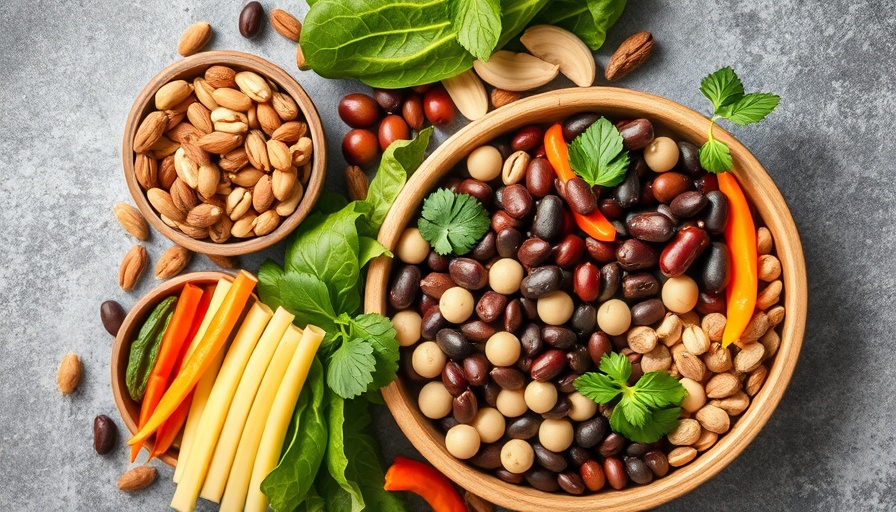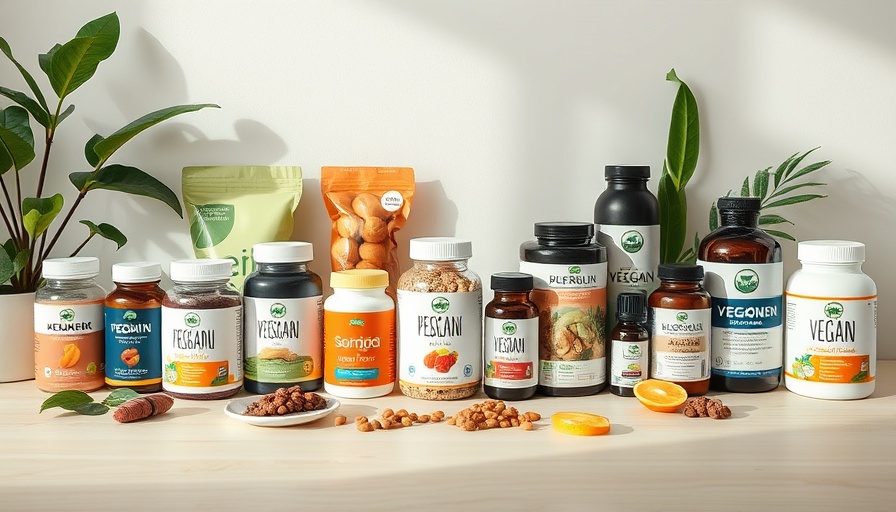
Understanding Dietary Detox: Cleaner Eating for a Healthier You
The idea of detoxing has become a popular trend in health and wellness circles. However, what if we could naturally detoxify our bodies simply by making more informed food choices? Recent insights reveal that adopting a plant-based diet not only promotes health but may also protect us from harmful pollutants.
What Are PLOPs and Why Should We Care?
Persistent lipophilic organic pollutants (PLOPs) remain a significant concern in our food system. According to experts, these chemicals, which include dioxins, PCBs, and past pesticides like DDT, find their way into our meat supply. A staggering 30,000 chemicals are currently registered under the U.S. Toxic Substances Control Act, and we often lack robust safety data on them.
Fish and animal products typically have the highest levels of these pollutants. For instance, studies indicate fish, especially farmed salmon and tuna, contain considerable amounts of PCBs and other harmful chemicals. This contamination raises concerns about the cumulative health risks associated with long-term exposure.
The Power of Plant-Based Eating
Shifting the focus to plant-based foods serves as an effective strategy for detoxing the body. Consuming foods from the lowest rung of the food chain drastically reduces our exposure to these chemicals. Research shows that plant-based diets can average seven to twenty times lower levels of PCB and dioxin-like contaminants compared to fish and meat.
Moreover, individuals who follow plant-based diets often experience lower rates of various cancers. While more studies are needed to confirm the direct impact on longevity, it’s clear that making informed dietary choices can mitigate harmful chemical exposure.
Recycling Toxicity: The Animal Feed Dilemma
A striking aspect of the modern food supply chain is the practice of recycling animal by-products back into animal feed. This cycle not only includes the feed itself but also the waste generated from these animals, which often harbors toxic heavy metals and chemicals. Consequently, even herbivorous animals that consume contaminated feed become conduits for these pollutants, reintroducing them into the food supply.
This situation has led to an alarming trend where heavy metals like lead and mercury accumulate over time. The contamination can significantly impact public health, linking higher exposure levels with compromised longevity.
What We Can Do: Making Informed Choices
For those desiring a detox that comes from their diet rather than external cleanses, transitioning to a plant-based lifestyle can be pivotal. It’s not just about avoiding fish or meat; it is about opting for whole, unprocessed foods that minimize exposure to industrial pollutants.
In practical terms, opting for organic fruits and vegetables, whole grains, nuts, and legumes can significantly steer one’s diet towards lower contamination levels. Furthermore, understanding where your food comes from can empower you to make choices that benefit both personal health and environmental sustainability.
The Takeaway: A Healthier Future Awaits
The evidence is increasingly clear: a plant-based diet holds significant potential in reducing exposure to harmful pollutants while promoting overall health. By making conscious dietary choices, you are not only taking steps towards detoxifying your body but also advocating for a healthier planet.
Ready to take control of your health? Start incorporating more plant-based meals into your diet today and experience the benefits of cleaner eating!
 Add Row
Add Row  Add
Add 




 Add Row
Add Row  Add
Add 

Write A Comment